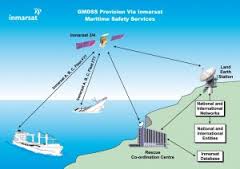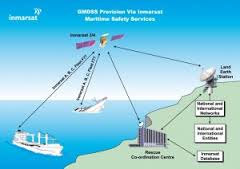Tech
Maritime Communications For Business Efficiency And Social Contacts

Satellite broadband is changing communications in the maritime industries. Real time business and weather information, market knowledge and maintaining crew morale are crucial to improve business efficiency.
The maritime industry has always been clear about its need for communications. It wants a communications network that offers the best possible service at the lowest possible cost. At the same time, many seasoned seafarers will comment that communications have always been an undervalued item in the maritime industry. Satellite communications came into general use with Immarsat, a British satellite company that provides communications for the Global Maritime Distress and Safety System (GMDSS) to ships and aircraft as a public service, but the expectations for this system’s capabilities were limited to disaster management. Then came VSAT (very small aperture terminal) initially used to transmit television signals or by high end industries such as offshore oil and gas drilling to transmit signals. It all changed when iDirect, a Virginia-based firm, started providing IP communications technology via satellite and expectations grew accordingly. However, oceans cover 70 percent of the Earth’s surface. Land-based solutions cannot be adapted easily offshore and there is always trouble getting adequate coverage around the Polar Regions.

Real-time Data Systems
Despite the obvious geographical and range problems, today there is an increasing demand in maritime satellite communications for the kind of services that are standard on land. Ship owners need reliable communications systems for crew and passenger welfare as well as real-time data systems. The energy industry and market has long used M2M (machine to machine) communications at sea but now ship and cargo owners are keen to use the technology. Communications manufacturers aim to optimise real-time email, crew Wi-Fi and IT access. These applications come into their own when unexpected weather means the ship has to be rerouted and there is a need to find the most efficient fuel-saving.
Crew Morale
Ship owners are coming under particular pressure to provide improved crew communications. The maritime industry is debating whether this can attract talented young people to train as seafarers. If a young generation that has grown up with social media cannot communicate socially on board a ship as they can onshore, they may not want the job. Some ship owners shrug their shoulders and comment there will always be crew availability as jobs are scarce everywhere. Others who want a good crew have installed free internet access for the crew but found that after a while, the cost became so prohibitive they had to introduce restrictions. So keeping in touch socially is becoming an employee management issue. Some seafarers may only work alongside each other for about four months and not meet again for many years, but they want to keep in touch. Better crew perks such as maritime satellite communications, the better the crew performs. But can the company afford it?
Conclusions
Major shipping companies, cruise line operators, oil and gas companies and military organisations are installing satellite communications for route planning, weather and engine diagnostics and social media as well as basic voice communications. But medium-sized companies, smaller fishing and private vessels are holding out for a cheaper service. High throughput satellites (HTS) could encourage this move. These run on a lower cost per megabyte and on low satellite capacity price.
AUTHOR BIO
Idania Silvia has worked in the satellite communications industry for the past 15 years. She is working with international organisations in the improvement of global communications and regulatory policy that will affect products made by manufactures such as Vocality.
-

 Tech11 years ago
Tech11 years agoCreating An e-Commerce Website
-

 Tech11 years ago
Tech11 years agoDesign Template Guidelines For Mobile Apps
-

 Business6 years ago
Business6 years agoWhat Is AdsSupply? A Comprehensive Review
-

 Business10 years ago
Business10 years agoThe Key Types Of Brochure Printing Services
-

 Tech8 years ago
Tech8 years agoWhen To Send Your Bulk Messages?
-

 Tech5 years ago
Tech5 years ago5 Link Building Strategies You Can Apply For Local SEO
-

 Law5 years ago
Law5 years agoHow Can A Divorce Lawyer Help You Get Through Divorce?
-

 Home Improvement6 years ago
Home Improvement6 years agoHоw tо Kеер Antѕ Out оf Yоur Kitсhеn































